Table of Contents
Quality Service Guarantee Or Painting Free

Get a rental agreement with doorstep delivery

Find the BEST deals and get unbelievable DISCOUNTS directly from builders!

5-Star rated painters, premium paints and services at the BEST PRICES!
Loved what you read? Share it with others!
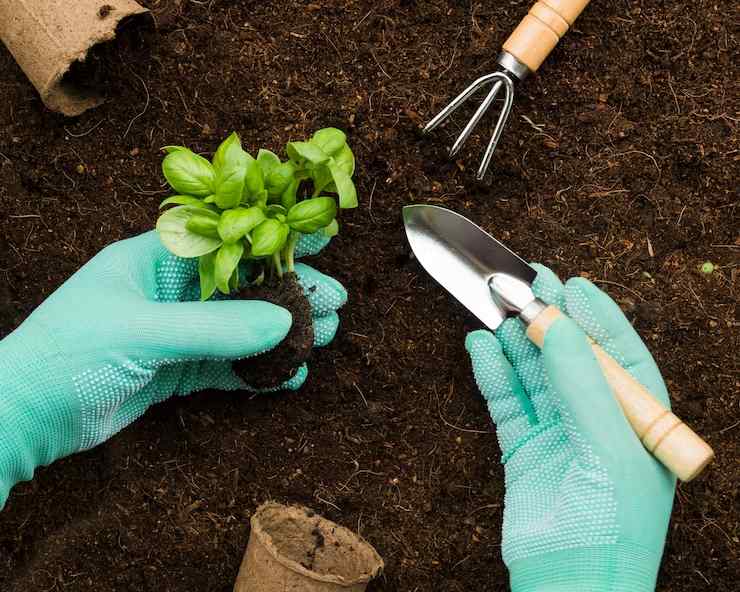
How to Cultivate Green Spaces in Indian Homes: Gardening Essentials & Tools
Table of Contents
Gardening is not just a hobby but a fulfilling way to connect with nature and create a serene oasis within your home. Whether you have a sprawling lawn or a small balcony, gardening in Indian homes is a perfect way to beautify your surroundings and enhance the overall appeal of your property.
Looking for new inspiration for your beautiful garden or maybe some tips to create your green space? From transforming limited spaces to embracing sustainable practices, embark on a gardening journey with us that will ignite your passion for nature and elevate your home's beauty. Get ready to cultivate breathtaking green spaces that will leave your neighbors in awe!
Hand Tools:
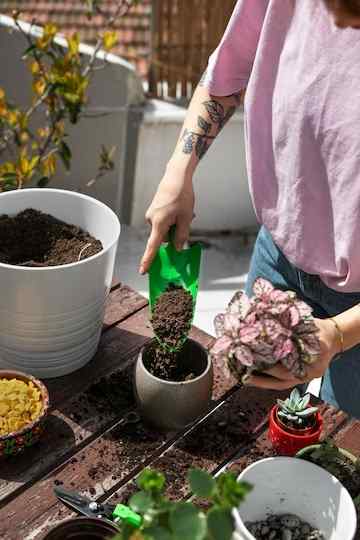
Hand tools are the backbone of any gardener's arsenal. Here are a few essential hand tools you should consider:
Quality Service Guarantee Or Painting Free

Get a rental agreement with doorstep delivery

Find the BEST deals and get unbelievable DISCOUNTS directly from builders!

5-Star rated painters, premium paints and services at the BEST PRICES!
a) Trowel: A sturdy trowel is indispensable for digging, transplanting, and loosening soil. Opt for one with a comfortable grip and a strong blade.
b) Pruning Shears: Ideal for trimming plants, pruning shears help maintain the shape and health of your garden. Look for a high-quality pair with sharp blades to ensure precise cuts.
c) Hand Fork: A hand fork is useful for breaking up compacted soil, removing weeds, and aerating the ground. It's a versatile tool that every gardener should have.
Watering Equipment:
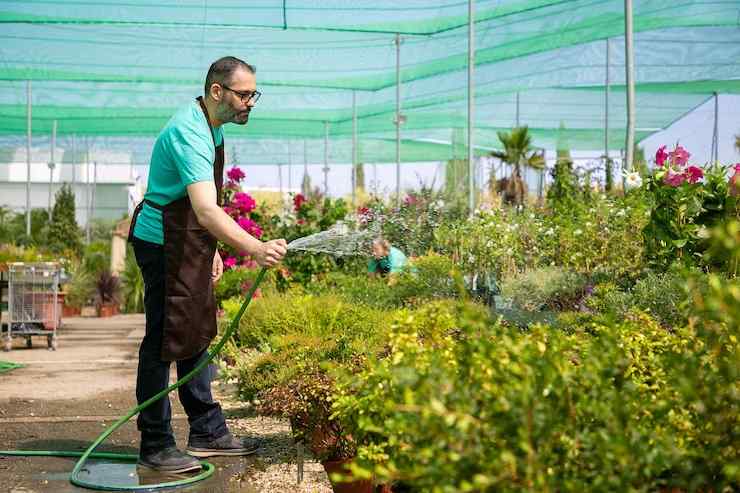
In India's diverse climate, watering is crucial for maintaining healthy plants. Here are some watering essentials:
a) Watering Can: Invest in a sturdy watering can with a long spout for accurate and controlled watering. Look for one with a removable rose attachment to customize the flow.
b) Hose and Spray Nozzle: For larger gardens or lawns, a hose with an adjustable spray nozzle is essential. It allows you to cover more ground efficiently and water different areas according to their specific needs.
c) Water Timer: Consider using a water timer, especially during the hot summer months, to automate the watering process and conserve water. It ensures that your plants receive the right amount of water without wastage.
Digging and Cultivating Tools:
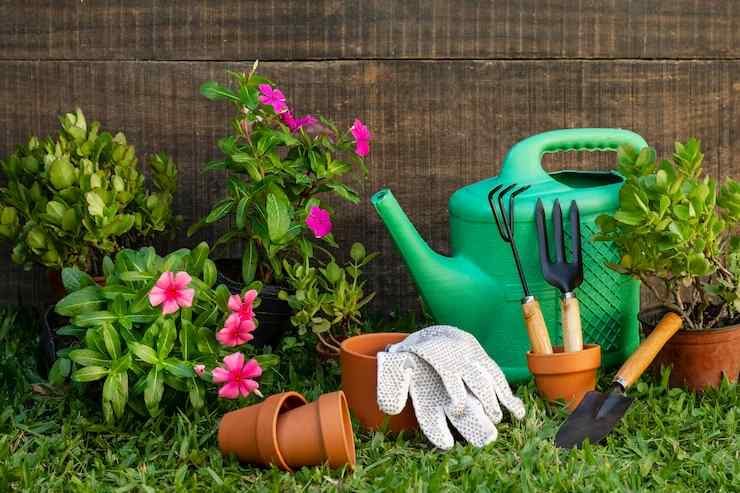
Preparing the soil is the first step towards a thriving garden. Here are the must-have digging and cultivating tools:
a) Garden Fork: A garden fork is essential for breaking up compacted soil, turning compost, and preparing the ground for planting. Look for a durable fork with sturdy tines.
b) Spade: A good-quality spade is necessary for digging planting holes, edging beds, and transferring soil. Opt for one with a comfortable handle and a sharp, durable blade.
c) Garden Rake: Use a garden rake to level the soil, remove debris, and break up clumps after digging. It's a versatile tool that helps create an even and smooth surface.
Protection and Maintenance:
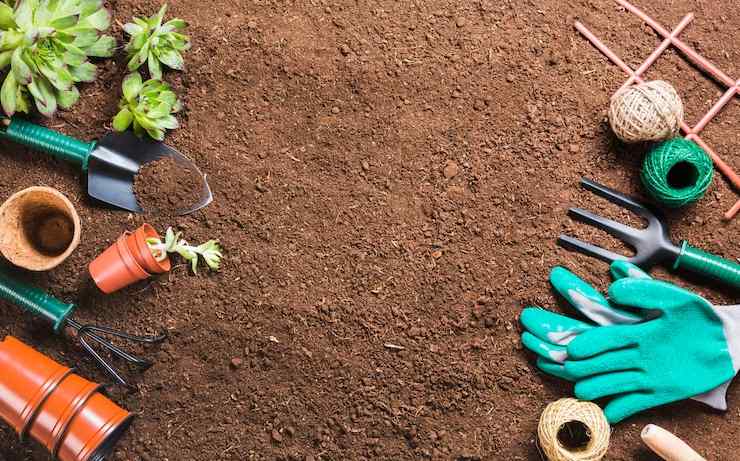
To keep your garden in top shape, consider the following essentials:
a) Gardening Gloves: Protect your hands from thorns, dirt, and chemicals with a pair of sturdy gardening gloves. Choose gloves that are comfortable, breathable, and provide a good grip.
b) Pruning Saw: For cutting thicker branches or small trees, a pruning saw comes in handy. Look for a saw with a sharp blade and a comfortable handle for effortless pruning.
c) Garden Apron: Keep your tools close at hand with a garden apron that has multiple pockets for storing smaller tools, seeds, and gloves. It saves time and ensures you have everything you need within reach.
5 Tips for Indian Homeowners to Enhance their Gardening Experience

- Consider the Climate and Season:
India's diverse climate and regional variations make it crucial to choose plants that are well-suited to your specific location. Research and select plants that thrive in your region's climate and adjust your gardening practices accordingly. Pay attention to the seasonal changes and adapt your watering, fertilizing, and pruning routines accordingly to ensure the optimal growth of your plants.
- Embrace Organic Gardening:
With increasing awareness about the importance of sustainable practices, organic gardening is gaining popularity in India. Embrace organic gardening methods by avoiding chemical pesticides and fertilizers. Instead, opt for natural alternatives like compost, neem oil, and organic fertilizers. This not only promotes healthier plants but also helps protect the environment and keeps your home garden free from harmful chemicals.
- Efficient Water Management:
Water is a precious resource, particularly in India where water scarcity can be a concern. Implement water-saving techniques in your garden to maximize efficiency. Consider installing a drip irrigation system that delivers water directly to the plant roots, minimizing wastage. Collect and reuse rainwater for watering plants whenever possible. Mulching is another effective technique to reduce evaporation and retain moisture in the soil, reducing the need for frequent watering.
- Utilize Vertical Space:
Indian homes often have limited outdoor space. Make the most of your available area by utilizing vertical space for gardening. Install hanging baskets, wall-mounted planters, or vertical garden structures to grow plants vertically. This not only adds greenery to your surroundings but also maximizes the available space, allowing you to grow a wider variety of plants.
- Incorporate Native and Drought-Tolerant Plants:
To ensure successful gardening in India, consider incorporating native plants and those that are well-adapted to the local conditions. Native plants are naturally suited to the climate, soil, and pests of a particular region, making them easier to maintain. Additionally, choose drought-tolerant plants that require less water and can withstand prolonged dry periods. These plants are not only resilient but also help conserve water in water-stressed regions.
Gardening offers Indian homeowners a fulfilling way to create beautiful green spaces, regardless of the available area. By investing in essential gardening tools tailored to your needs, you can embark on a gardening journey that brings joy, serenity, and a touch of nature to your home.
So, grab your tools, put on your gloves, and get ready to create a thriving garden that will be the envy of your neighborhood. Remember, gardening is a journey of learning and experimentation.
Don't hesitate to seek local gardening advice, consult gardening communities, and adapt techniques to suit your specific needs and environmental conditions. If you want assisatnce or professional installation, reach out to NoBroker Interior Services. Our best in class service professionals can help you in every step of the way. Get in touch with us and get started today.
FAQ's
A1: Some essential hand tools for gardening include a trowel for digging and transplanting, pruning shears for trimming plants, and a hand fork for loosening soil and removing weeds.
A2: In water-scarce regions, consider using water-saving techniques such as drip irrigation systems that deliver water directly to the roots, collecting and reusing rainwater, and implementing mulching to retain moisture in the soil.
A3: Yes, there are several organic alternatives available. Consider using neem oil as a natural pesticide, compost as an organic fertilizer, and incorporating companion planting techniques to deter pests naturally.
A4: Utilize vertical space by installing hanging baskets, wall-mounted planters, or vertical garden structures. This allows you to grow a variety of plants without taking up much horizontal space.
A5: Some native and drought-tolerant plants suitable for Indian gardens include bougainvillea, hibiscus, aloe vera, curry leaves, and succulents like jade plants and aloe varieties. These plants are well-adapted to the local climate and require less water.
Loved what you read? Share it with others!
Most Viewed Articles

Secrets to Unlock Before Buying Your Dream Apartment
June 15, 2023
6532+ views

Unlocking the World of Digital Assets: A Guide to Cryptocurrency and NFTs
March 21, 2023
6325+ views

Unleashing The Power Of Chakras Through Yoga And Meditation
April 25, 2023
6093+ views

Understanding the Tenant Selection Process
June 16, 2023
6058+ views

Unlocking IPO Potential: Strategies for Maximising Returns
June 13, 2023
6046+ views
Recent blogs in
The Impact of Yearly Budget 2025-24 on Middle Class [A Comprehensive Analysis]
January 31, 2025 by NoBroker.com
Understanding the Tenant Selection Process
June 16, 2023 by NoBroker.com









 Full RM + FRM support
Full RM + FRM support
Join the conversation!